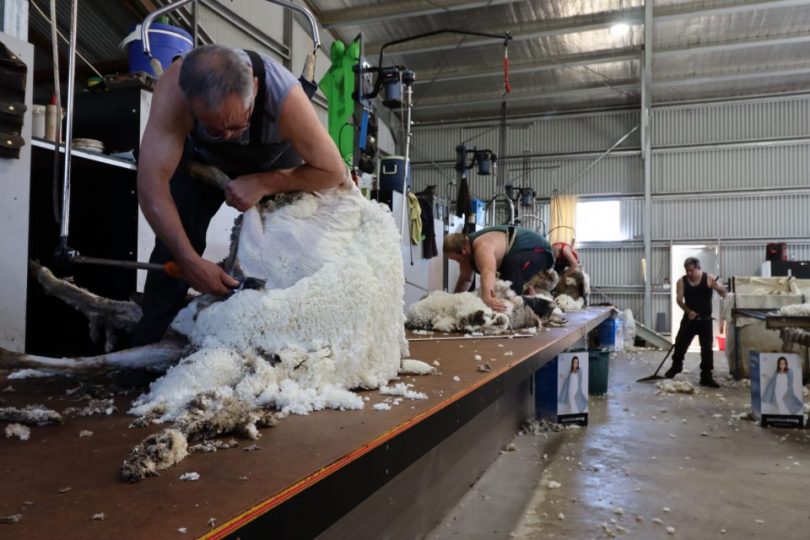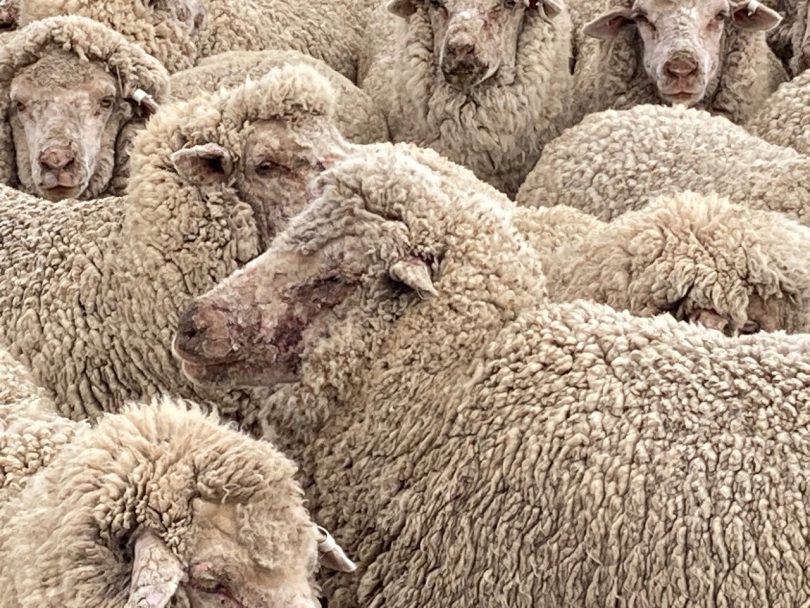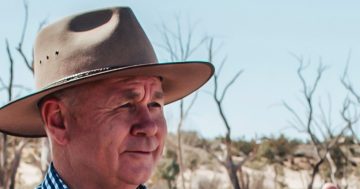
Contractors, farmers and shearers are being urged to work together to ensure a safe working environment during the COVID-19 pandemic. Photo: Hannah Sparks.
Concern is growing that shearers will become the latest profession to be stricken by the COVID-19 pandemic.
As a transient workforce, often moving from one isolated regional area to an even more remote one, they are more at risk of catching the virus. This can be compounded by some shearers being obliged to work in outback areas with limited amenities.
Shearing organiser and NSW Vice-President of the Australian Workers Union (AWU) Ron Cowdrey said added to this was the fact there were now fewer shearers available to do the job, compounding pressure on existing workers to do more with less.
He said some shearers had already tested positive to COVID-19 in Wilcannia, in outback NSW, and had been told to isolate on a farm to ensure the virus did not spread.
The union first expressed its concerns for the safety of the mobile shearing workforce last week, when it was told by shearers and shed hands that some contractors had a “she’ll be right” attitude when it came to the COVID-19 virus.
“Shearing and shed workers regularly work and travel between multiple sites and states and we warned last week that unless the industry took COVID-19 safety seriously, it was a disaster waiting to happen – clearly that disaster is now closer to being the case,” Mr Cowdrey said.
He said he knew times were hard for people trying to make a living off the land, but that safeguarding the health of crucial workers like shearers was “an easy fix”.

Safe practices in the shearing shed will help both workers and animals come through the COVID-19 pandemic. Photo: File.
“Pretty much all that is needed to safeguard workers is a set of portaloos, hand sanitiser and QR codes,” Mr Cowdery said. “I mean it can all be written off under tax.
“Many farmers are interested in doing the right thing while others prefer to instead spend $3000 on a piece of machinery for use in one harvest.
“I come from the small community of Hay and I know what disasters can happen in places like this if the proper action isn’t taken.
“All I am calling for here is to make it safe for workers. I don’t think that’s a big ask.”
Mr Cowdrey said, as shearing was considered to be an essential service, he urged all people involved in the industry to work together for the safety of its workers.
He called for rapid antigen testing on all shearing sites, followed by additional PCR secondary tests and for all shearers and shed hands to be moved up the vaccination priority list and encouraged to get vaccinated.
“I also call on all farmers, shearing contractors and workers to work together to meet all the safety protocols and for SafeWork NSW to do its job and visit all the sheds.”
He also encouraged wool growers and contractors to follow steps taken by other rural industries to protect the health of their workers. This included hand basins with running water and sanitiser, ensuring everyone scanned in via QR code or signed in every day, wore a mask – except for when shearing as it’s deemed a strenuous physical activity – ensuring 1.5 metres between each worker, or use every second stand, and disinfecting and cleaning high-touch surfaces.
“It’s just all about keeping people safe,” he said. “I don’t think that’s too much to ask.”









